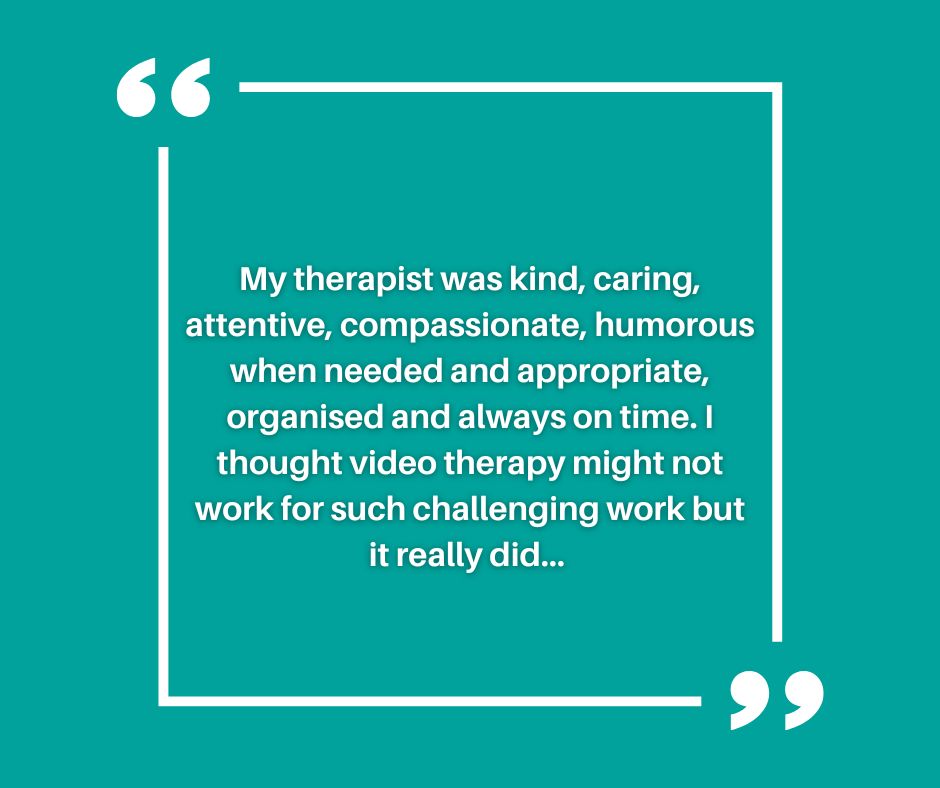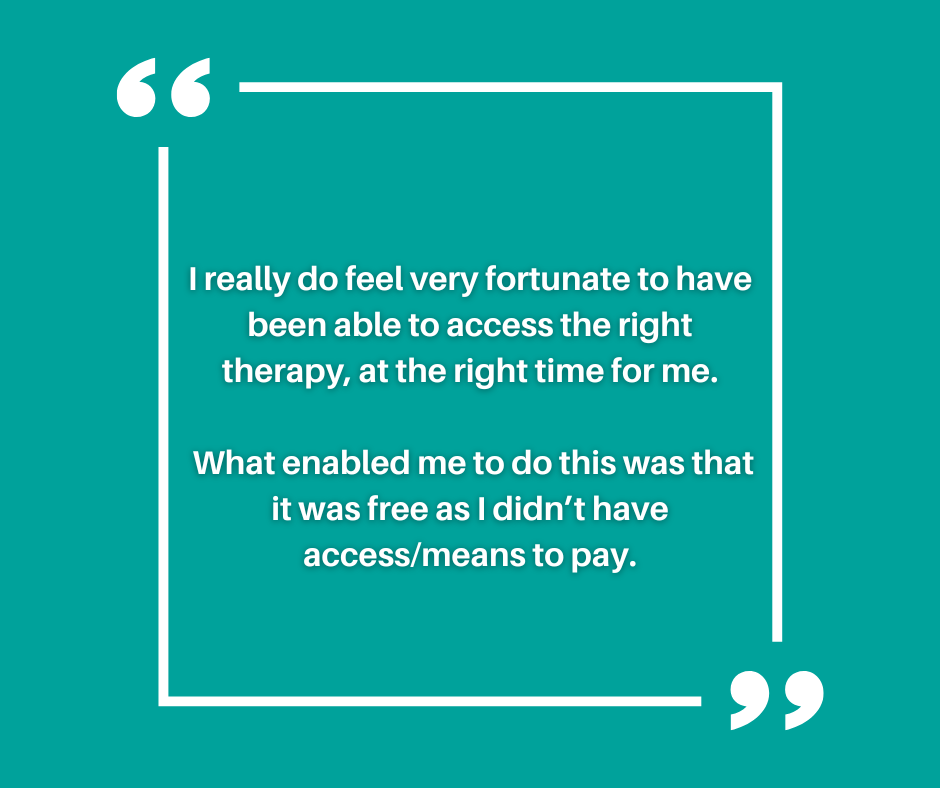We offer trauma-informed telephone and online counselling to individuals aged 16 years and over in England and Wales affected by childhood sexual abuse and to those who support them such as non-abusing family members.
For online counselling you can choose to have your sessions via video, instant messaging, or email. Please click on this link to email for information.

Telephone and online counselling provide a different experience to face to face counselling and there are many advantages to telephone and online counselling such as accessibility, cost, time, and location but there are also some risks that you need to be aware of:
- It is important that your computer/tablet/phone that you are using for counselling allows for you to be in a safe and private environment so that our work together remains confidential.
- If you are feeling suicidal or in extreme distress, then telephone or online counselling is not recommended. If you need urgent help and are in crisis now, please call Samaritans for free on 116123, text Shout to 85258 or call emergency services on 999.
If you decide to have telephone or online counselling with us, we will send you all the information you need to get started and we will guide you through the set-up process.
You will need:
- To have a private and confidential space for your sessions.
- To be a confident computer user for online therapy.
- To have good reading and typing skills (for using email or instant messaging therapy)
- Internet access on a computer that you can use privately for the duration of your session.
- A headset (if you are having telephone or video sessions)
- A webcam (if you are having video sessions)
Our staff
All of our staff are qualified counsellors/psychotherapists who have undertaken additional training to work remotely via telephone and online as well as accredited training in working with survivors of sexual abuse. Our team are members of professional bodies such as the British Association for Counselling and Psychotherapy (BACP) or equivalent and abide by their ethical framework. If you would like further information on staff training or qualifications please get in touch by emailing office@safeline.org.uk or calling 01926 402498.
How to access Telephone and Online Counselling:
- You contact us: Let us know you want to access the service by emailing us or contacting the main office on 01926 402498 or completing a self-referral form found here. You will then be sent a welcome pack with information about the service and further information about confidentiality.
- Assessment: Assessment is about finding out more about you, what you would like to get out of counselling, finding the right kind of support for you and for you to ask any questions you have about counselling. The assessment takes about an hour, and you need to have a private confidential space for this. If other types of support are more suitable for you, we will discuss this with you and may refer you to another specialist service.
- Matching you with a counsellor: If, after assessment, telephone or online counselling is right for you we will match you with a counsellor for counselling sessions at times that are convenient for you. You will then have regular counselling sessions with your counsellor at an agreed set day and time each week. A session is 50 minutes and you and your counsellor will regularly review the work you are doing to ensure you are getting what you need from the service. After you have finished your counselling sessions, we will ask you if you would like to give feedback about the service.

Feedback
We really appreciate your feedback about our counselling service and you can give us feedback at any time to enable us to give you the best possible experience. You can speak to your counsellor, call the office on 01926 402498 or or e-mail us on office@safeline.org.uk. You are also very welcome to complete our feedback form anonymously through Survey Monkey by clicking here. Thank you.
Confidentiality and Data Protection
All the information you give us will be kept confidential within our organisation unless:
- You give us permission to share information.
- The information is requested by a court of law.
- There is serious risk of harm to another person, for example, a serious crime being committed such as terrorism, fraud, or a child protection concern.
- There is serious risk of harm to yourself, for example, a plan to take your own life.
To ensure good practice, all our counsellors have regular management and clinical supervision where they discuss their counselling work on an anonymous basis. Safeline keep counselling notes of each counselling session, these are kept securely for a minimum of 7 years and these notes are kept separately from personally identifying information.
To read more about our confidentiality policy please click here.


